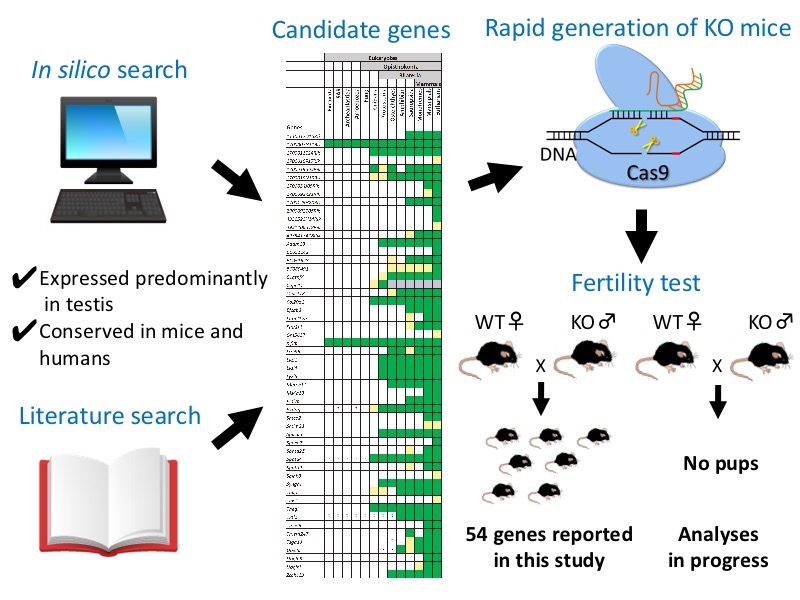Proc Natl Acad Sci U S A 113(28):7704-10 2016/07/12
In the mouse genome, thousands of genes are predominantly expressed in the testis, where these genes are thought to play important roles in spermatogenesis and fertilization. However, in this study, we report that 54 evolutionarily conserved and testis-enriched genes are not essential for male mouse fertility by knocking out each gene with genome editing technology (*1). These results suggest that we cannot understand the importance of genes only by the tissue expression profile. Because the recent development of genome editing technology has made it faster and easier to produce knockout mice, our results suggest that one should determine whether a gene of interest is essential for male fertility in vivo before spending significant effort to analyze the molecular function of the gene in vitro.
(*1)genome editing technology
Gene modification techniques that can edit a specific region of genome (an organism's complete set of DNA, including its genes) with high accuracy. In this research, researchers used the technology called CRISPR/Cas9 system.
Links
- Home
- Achievement
- Research Activities
- Proc Natl Acad Sci U S A 113(28):7704-10 2016/07/12









